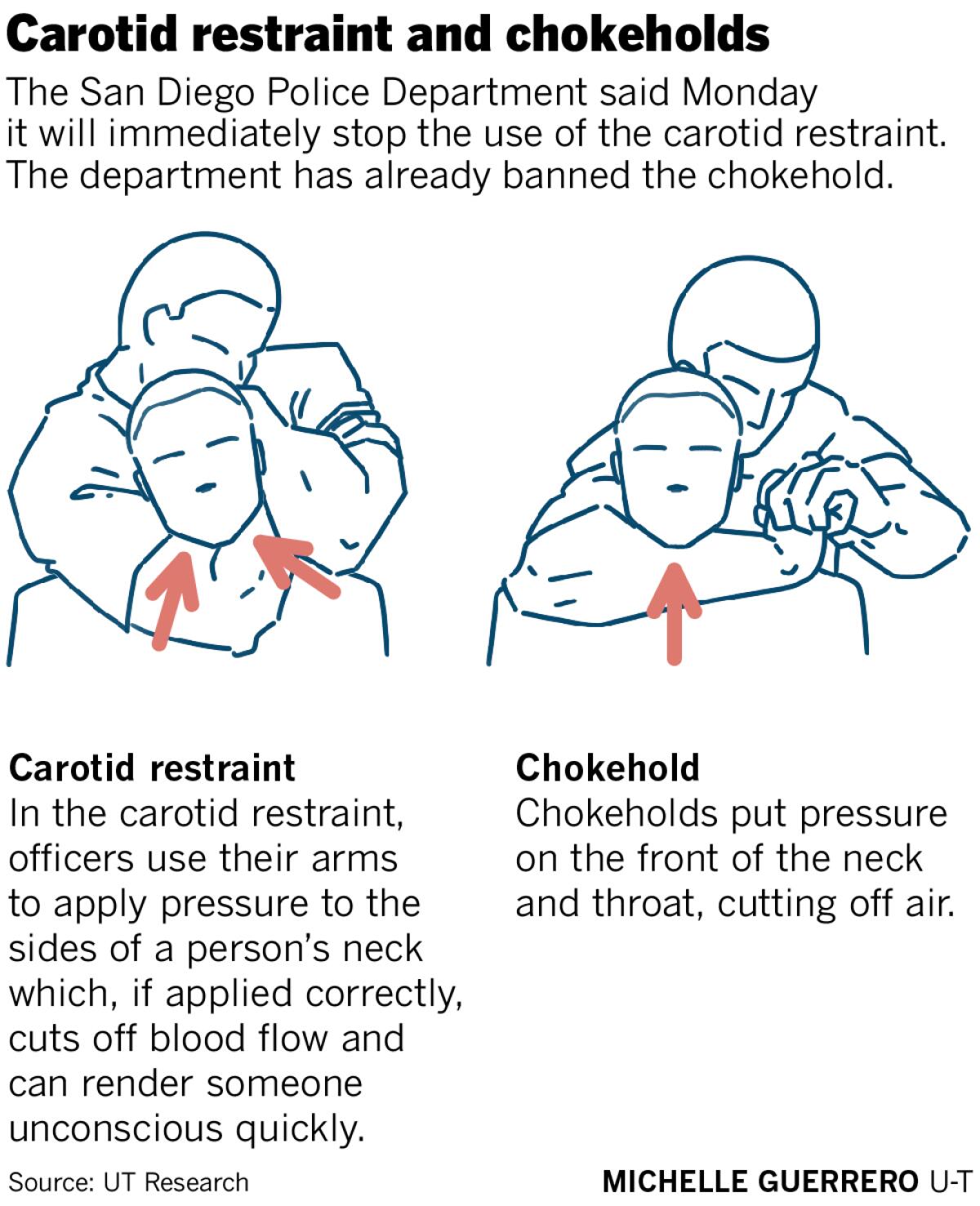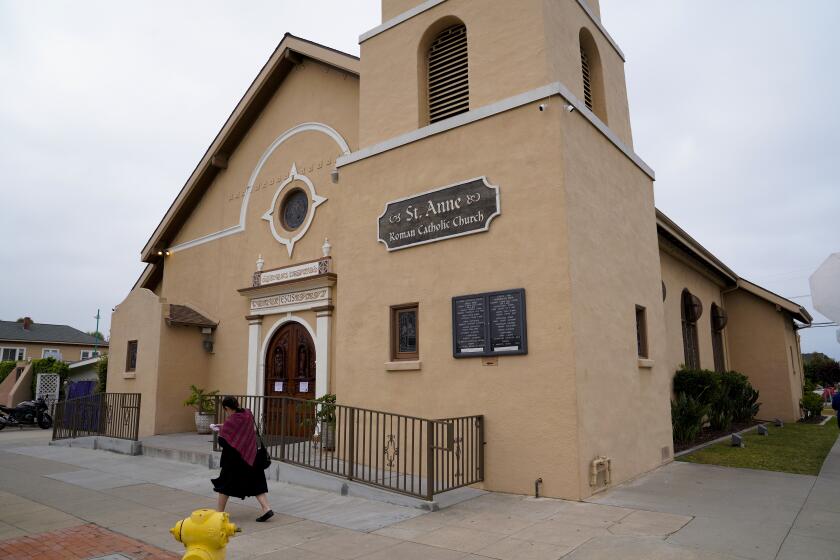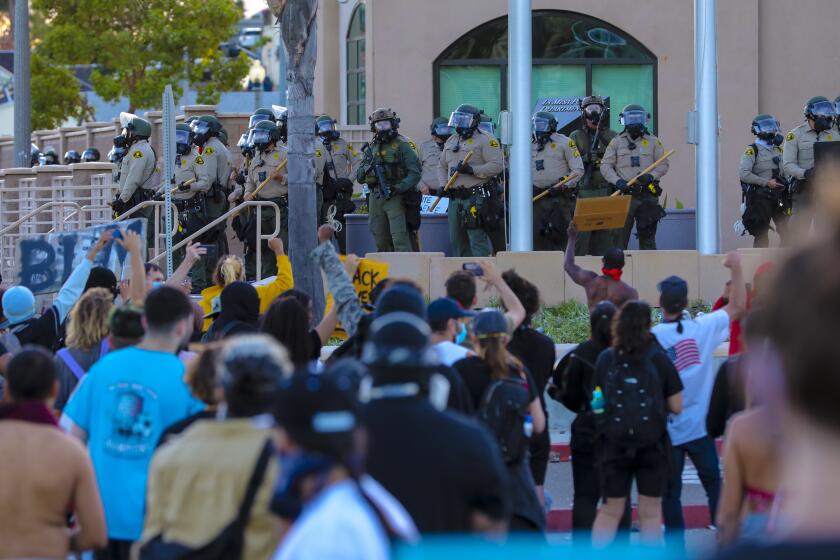San Diego police end use of carotid restraint, effective immediately

Officials said the policy change was prompted by death of George Floyd
- Share via
SAN DIEGO — San Diego police will no longer use a controversial neck hold known as a carotid restraint, the department chief and the city’s mayor said Monday.
Officers will stop “the use of the carotid technique, effective immediately,” San Diego Mayor Kevin Faulconer said at a news briefing after two days of protests in the region that began peacefully but later turned riotous, with some people looting, vandalizing buildings and property, and starting fires.
San Diego Police Chief David Nisleit also said use of the carotid hold “stops immediately.”
“It’s the right thing to do for our community,” he said. “It’s the right thing to do for our officers.”
A carotid restraint, also known as a sleeper hold or a blood choke, is controversial. In such a hold, officers use an arm to put pressure on the sides of a person’s neck. If applied correctly, the person can fall unconscious.
But it can also lead to injury or death and has been banned or restricted by other large police departments.
Critics say it is used disproportionally on people of color and have been asking the city for years to discontinue its use.

San Diego police leaders have previously defended the technique, saying it has been used safely hundreds of times and can help end potentially dangerous encounters quickly before they escalate.
Last year, the department said its officers applied the move safely 574 times between 2013 and 2018. On Monday, Faulconer said officers used the restraint about 70 times in the last year.
San Diego City Councilwoman Vivian Moreno issued a statement saying she strongly supports ending the use of the hold. “This is an excellent, long overdue first step, but more must be done,” she said.
San Diego’s announcement that its officers will no longer use the technique comes on the heels of two days of protesting that has turned riotous in the region and the country after the death of George Floyd, who was handcuffed, in custody and on the ground when a Minneapolis police officer held a knee on his neck for several minutes.
Floyd can be heard pleading, saying he could not breathe. The incident was caught on video and has sparked anger nationwide.
Figueroa writes for the San Diego Union-Tribune.
More to Read
Sign up for Essential California
The most important California stories and recommendations in your inbox every morning.
You may occasionally receive promotional content from the Los Angeles Times.









